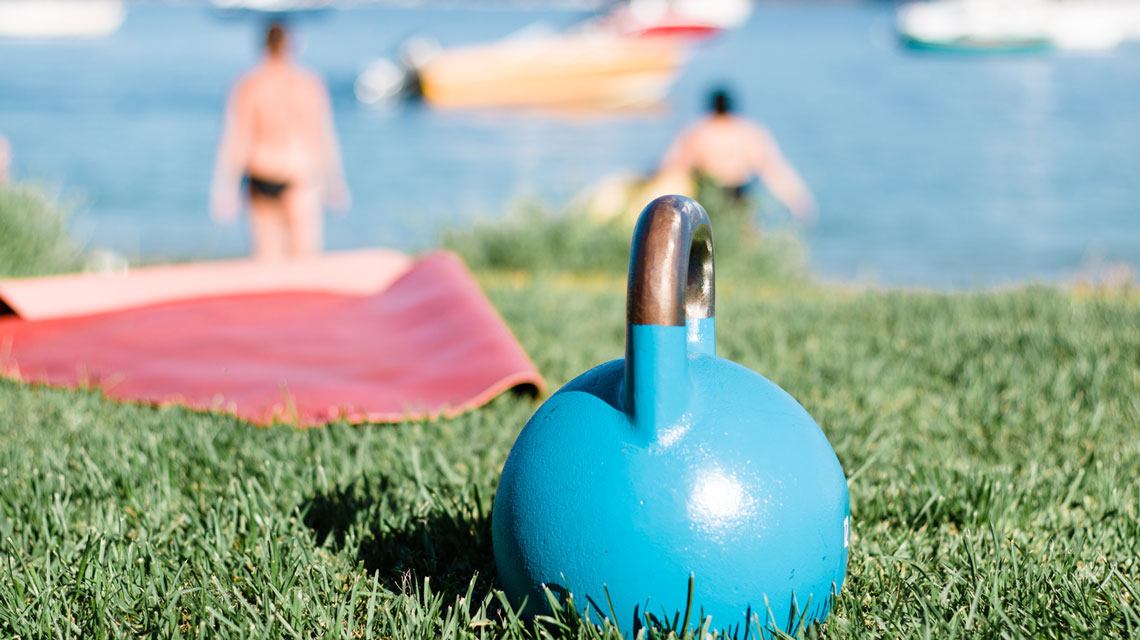
Accept
the
challenge
Finish your first marathon smiling (and injury-free)
November 19, 2017Finish your first marathon smiling (and injury-free)
November 19, 2017The build-up to your first marathon is an exciting time. It’s one of the classic tests of physical endurance and mental toughness. Whether you’re a runner or not, it’s a challenge worth tackling.
Recent studies have shown that 70% of runners sustain overuse injuries during any 12-month period. Overuse injuries are most commonly caused by training errors which means injuries such as runners’ knee, shin splints, iliotibial band friction syndrome and plantar fasciitis are all largely avoidable.
With a multitude of beginner training programs out there it can be hard to find the one that is a right fit for you. Programs can vary from 12-20 weeks in duration, recommending anywhere between 2-6 runs per week. So let’s set things straight for all you marathon first-timers. Follow these 5 simple tips to get across that finish line smiling…or at least injury-free.
The 10% rule (10PR)
For beginners, enthusiasm can often be your biggest enemy. A premature increase in training volume is the number one cause of injury in runners. The 10PR states that training volume should never increase by more than 10% per week. It can be tempting to ignore this principle on days when you are feeling ready to push further, however, training adaptations take time and quick increase in training volume is a sure-fire way to end up out of the race. Be patient. Build up slowly and stick to 3 runs per week maximum.
Mobility
Muscular imbalance is the second major cause of injury during marathon training. Developing a consistent mobility practice is often an easy fix for this. Defined as the ability to move freely and without pain, mobility is an essential part of any running program. Mobility combines strength with flexibility and helps to ensure that joints have a full range of motion and can move the way they are made to. If ignored, tight muscles can become tighter while weak muscles remain inactive.
It is best to correct any imbalances immediately before a run by releasing tight muscles and activating weak muscles. This will help performance and reduce the risk of injury. Regardless of muscular imbalance, runners should aim to include 15-30 minutes of mobility at least 3 times per week to maintain good joint health.
Strength training
Strength training is integral to injury prevention in runners. By improving the strength of the core and running specific muscles it’s possible to speed up the correction of muscular imbalances and improve joint stability. Increasing leg strength is also directly related to the development of power and running speed. Aim to include strength training sessions twice a week. These sessions should focus on single-leg exercises, for example, single leg deadlifts, walking lunges and Bulgarian split squats, in combination with core exercises.
Cross training
Running injuries can be seen as repetitive stress injuries. Performing the same movement over and over for hours at a time places excess stress on the body. Mix up the distance, pace, running surface and elevation of your training to create variety in the type of stress that your body experiences. Cycling, swimming, High-Intensity Interval Training (HIIT) and group fitness classes are great cross training options to help improve cardiovascular fitness while reducing the risk of injury through repetitive movement.
Cut down on alcohol
Excessive alcohol has been found to hinder both recovery and performance. Drinking more than 2 standard drinks per day can lead to poor quality sleep, dehydration, reduced motivation and overall fatigue. General fatigue can lead to poor form and subsequent injury. Stick to a maximum of 1-2 standard drinks a week in the month leading up to your first marathon to make the most of your training.
Be patient. Do the distance. Embrace the challenge. Cross the finishline smiling (and injury-free).
Image by Mooshny/Shutterstock



